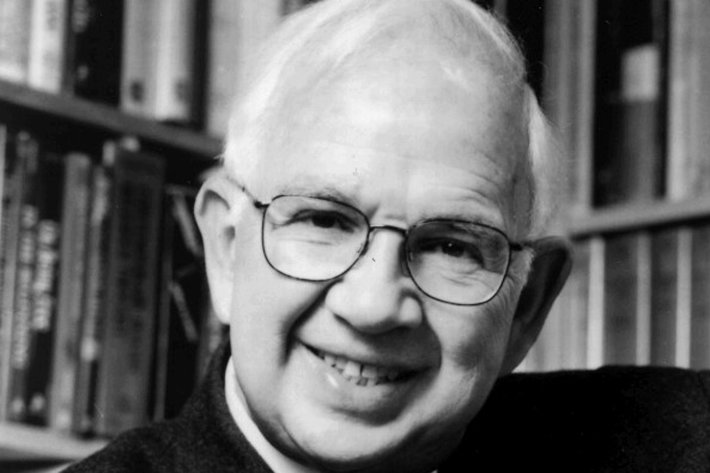Madeleine Albright, an astute analyst of international affairs and the first woman to serve as U.S. Secretary of State, died March 23. She was 84.

Albright, top diplomat of the Clinton administration and the highest-ranking woman in the history of the U.S. at that time, encouraged the involvement of religious leaders and institutions in public policy and foreign relations. She represented the U.S. at the United Nations and earned plaudits from career diplomats and ordinary Americans for her work.
Raised Catholic, In 1959, when she married Joseph Medill Patterson Albright, scion of the family that owned the Chicago Tribune, The New York Daily News and Newsday, she joined the Episcopal Church, to which her husband belonged.
Albright was long a familiar face at St. John’s Episcopal Church in the Georgetown neighborhood of Washington, D.C., where she regularly worshipped. Mourning her loss, the church’s presiding bishop and primate, Michael Curry, described her as a “trailblazing ambassador” to whom he was particularly thankful “for her guiding belief that religious leaders have an essential role to play in foreign policy, and for her Anglican sensibility in navigating difference and diversity.
“In looking at what was going on in the world, it was evident that religion and the force of religion and people’s interpretation of how they saw God really is very much part of international relations,” Albright said in a 2006 interview with PBS’s Religion & Ethics NewsWeekly. “Rather than keeping religion and religious leaders out of things, we need their help.”
It was only in 1997, when she read an article about herself in the Washington Post, that Albright confirmed what she had only suspected: that the family she was born into in Czechoslovakia in 1937 was Jewish. Her father, Josef Korbel, was a press attaché in the Czech Embassy in Belgrade, Yugoslavia. When Hitler invaded Czechoslovakia on March 15, 1939, Korbel was targeted for execution and went into hiding. After 10 days underground, he and his family followed Czech President Edvard Benes in fleeing to London. Three of Albright’s grandparents perished in Nazi concentration camps. Her parents converted to Catholicism in England. The Korbel family later emigrated to the U.S.
Former President Bill Clinton nominated Albright as Secretary of State shortly after beginning his second term in 1997. She was unanimously confirmed by the Senate in a 99-0 vote. But instead of traveling to some overseas capital on her first official trip, Albright flew to Texas, where she gave a speech at Rice University aimed at taking U.S. foreign policy directly to the American people.
“As secretary, I will do my best to talk about foreign policy not in abstract terms, but in human terms and bipartisan terms,” she said. “I consider this vital because in our democracy, we cannot pursue politics abroad that are not understood and supported here at home.”
She subsequently took off on a nine-nation global tour, stopping in Rome, Paris, London, Brussels, Bonn, Moscow, Tokyo, Seoul and Beijing. “It was a getting-to-know-you circumnavigation that showed off her grasp of issues, her language skills and her centrality as Mr. Clinton’s chief foreign policy maker and spokeswoman,” The New York Times noted in a March 25 tribute to Albright.
In addition to her 2003 memoir, Madam Secretary, Albright chronicled her faith in the 2006 book, The Mighty and the Almighty: Reflections on America, God, and World Affairs. Other books included Memo to the President-Elect: How We Can Restore America’s Reputation and Leadership (2008). And her last book, Hell and Other Destinations: A 21st-Century Memoir, co-authored with Bill Woodward, was published in 2020.
_______________
From its beginnings, the Church of Scientology has recognized that freedom of religion is a fundamental human right. In a world where conflicts are often traceable to intolerance of others’ religious beliefs and practices, the Church has, for more than 50 years, made the preservation of religious liberty an overriding concern.
The Church publishes this blog to help create a better understanding of the freedom of religion and belief and provide news on religious freedom and issues affecting this freedom around the world.
The Founder of the Scientology religion is L. Ron Hubbard and Mr. David Miscavige is the religion’s ecclesiastical leader.
For more information visit the Scientology website or Scientology Network.


